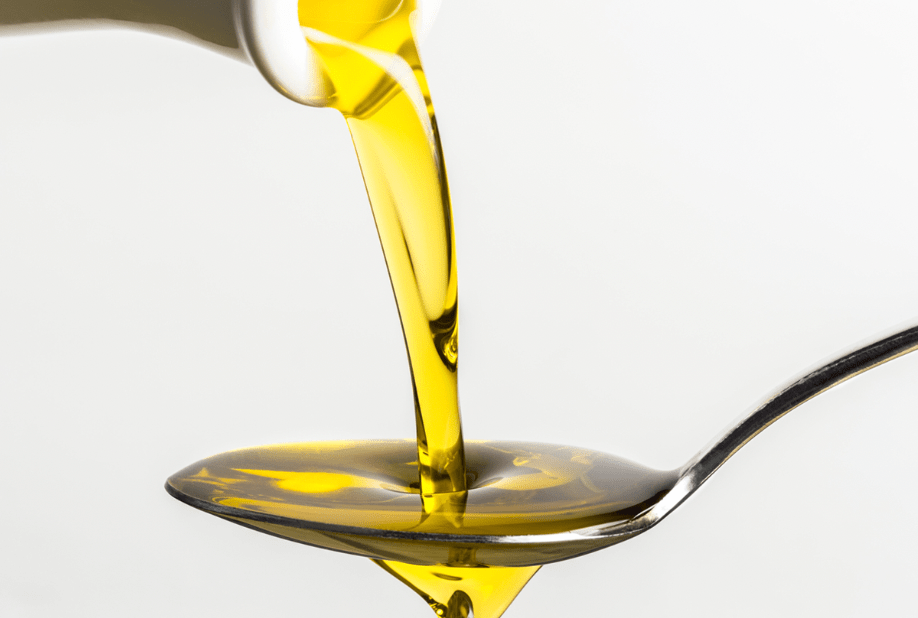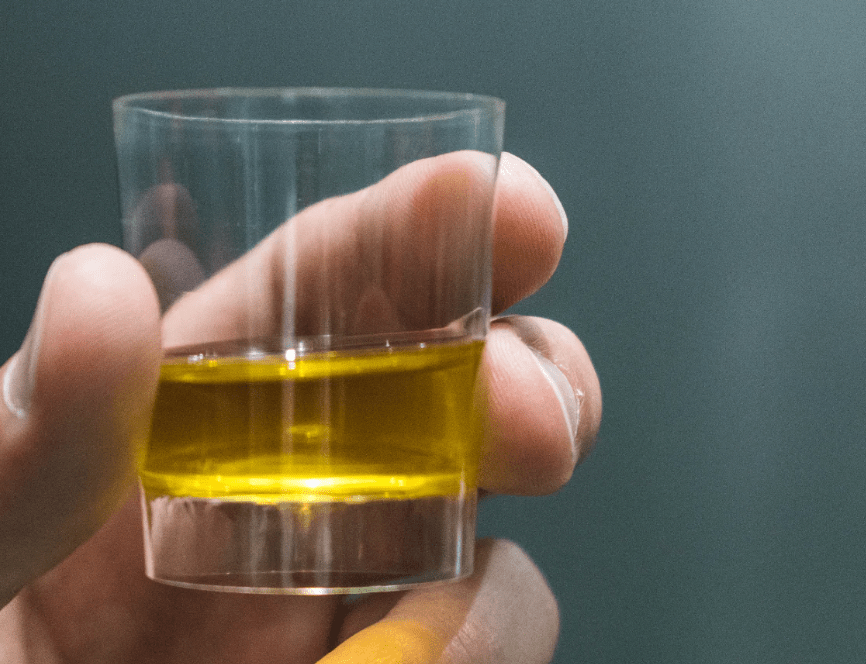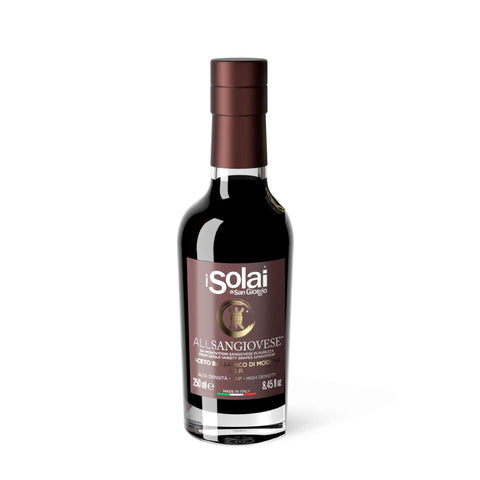
Olive oil, particularly extra virgin olive oil (EVOO), has been a key component of Mediterranean diets for centuries. Recently, it has gained popularity worldwide as a natural remedy for various health concerns.
At McEvoy Ranch, the extra virgin oil that we produce on our 550-acre working farm in California is rich in monounsaturated fats and powerful antioxidants. Research suggests that olive oil helps protect against heart disease, brain disorders, and other chronic conditions.
In this article we will look at the specific benefits of drinking olive oil, and how you can incorporate it into your routine safely.
Key Tawkeaways:
- Extra virgin olive oil is rich in healthy monounsaturated fats.
- Olive oil contains antioxidants that may reduce the risk of chronic diseases.
- Consuming olive oil may support heart health, brain function, and overall wellness.
- Olive oil is the cornerstone of the healthy traditional Mediterranean diet.
Why Drink Olive Oil? An Overview of Its Benefits
Drinking olive oil is a simple and effective way to boost your intake of healthy fats and antioxidants. As a staple of the Mediterranean diet, olive oil is renowned for its health benefits.
Unlike other oils, extra virgin olive oil (EVOO) retains its natural nutrients, making it an ideal choice for enhancing your meals and supporting overall health.
Key Benefits of Dirnking Olive Oil
- Improves Digestive Health: Olive oil can promote smoother digestion by facilitating the movement of food through the digestive tract and reducing symptoms like bloating and constipation.
- Stabilizes Blood Sugar Levels: Eating or drinking olive oil can help regulate blood sugar levels, making it a beneficial addition for people with diabetes or those at risk.
- Enhances Nutrient Absorption: Consuming olive oil aids in the absorption of fat-soluble vitamins (A, D, E, K), helping you get the most out of the foods you eat.
- Promotes Healthier Skin and Hair: The vitamins and antioxidants in olive oil nourish the skin and hair, promoting a radiant complexion and stronger hair.
- May Have Anti-Cancer Properties: Some studies suggest that the antioxidants and polyphenols in olive oil may help protect against certain types of cancer.
Adding olive oil to your diet does more than enhance flavor; it’s a nod to a long tradition of using what many refer to as “nature’s gold” for health benefits. Remember, the quality of the olive oil is crucial to obtaining its full benefits; extra virgin olive oil has the best flavor and most nutritional benefits.
Top Health Benefits of Drinking Olive Oil
Incorporating olive oil into your daily diet can offer a range of health advantages:
1. Improves Digestive Health
Olive oil acts as a natural lubricant for the digestive system, facilitating smoother food movement through the intestines. This action can alleviate common digestive issues such as bloating and constipation, while promoting overall gut health and supporting regular bowel movements.
2. Promotes Heart Health
Rich in monounsaturated fats, olive oil plays a crucial role in heart health by helping to lower low-density lipoprotein (LDL) cholesterol while increasing high-density lipoprotein (HDL) cholesterol. Research indicates that individuals who consume the recommended amount of olive oil have a 19% lower risk of mortality from cardiovascular-related diseases.
Regular consumption has been associated with reduced blood pressure and improved overall heart health, significantly lowering the risk of heart disease.
3. Aids in Weight Loss and Metabolism
Contrary to common misconceptions about fats, olive oil can contribute positively to weight management. It boosts metabolism and promotes satiety, helping you feel full for longer periods.
This increased feeling of fullness can potentially lead to reduced overall calorie intake, supporting weight loss or maintenance efforts. Additionally, the monounsaturated fats in olive oil may help improve insulin sensitivity, further aiding in metabolic health.
4. Reduces Inflamation and Pain
Olive oil contains powerful compounds like oleocanthal, which exhibit natural anti-inflammatory properties similar to ibuprofen. These compounds can help reduce systemic inflammation and alleviate pain, offering particular benefits to individuals with inflammatory conditions such as arthritis. The anti-inflammatory effects of olive oil may also contribute to overall longevity and reduced risk of chronic diseases.
5. Supports Skin and Hair Health
Rich in vitamins E and K, olive oil nourishes and moisturizes the skin and hair. Regular consumption can improve skin elasticity, reduce the signs of aging, and promote healthy, shiny hair.
A balanced diet that includes numerous vitamins and minerals is important for general health, as 30% of the global population is deficient in vitamins and minerals necessary for well-rounded health.
|
Benefit |
Impact |
|
Digestive Health |
Improves gut function, relieves constipation |
|
Cardiovascular Health |
Lowers blood pressure, improves cholesterol |
|
Weight Management |
Boosts metabolism, increases satiety |
|
Anti-inflammatory |
Reduces inflammation and pain |
|
Skin and Hair Health |
Nourishes with vitamins E and K |
Drinking Olive Oil for Specific Health Conditions
Olive oil, consumed with food, has been shown to be particularly beneficial for managing certain health conditions:
Benefits for High Cholesterol
Olive oil can help manage cholesterol levels by increasing HDL (good cholesterol) and reducing inflammation. This supports overall heart health and reduces the risk of cardiovascular diseases.
Helps Manage Diabetes
9.3% of the population have been diagnosed with type 2 diabetes. Studies have shown that olive oil may improve blood sugar control. It helps regulate glucose levels and improves insulin sensitivity, making it a valuable dietary addition for diabetes management.
Supports Join health
The anti-inflammatory properties of olive oil are beneficial for those with arthritis. Regular consumption may help reduce joint pain and inflammation, potentially improving mobility and comfort for individuals with rheumatoid arthritis.
|
Health Condition |
Olive Oil Benefit |
|
High Cholesterol |
Increases HDL cholesterol |
|
Diabetes |
Lowers blood sugar levels |
|
Arthritis |
Reduces inflammation |
While olive oil shows promise for these conditions, it is not a cure. Always consult a healthcare professional before making any changes to your diet or treatment plan. Olive oil is most effective when used as part of a healthy, balanced lifestyle.
Best Practices for Drinking Olive Oil to Maximize Benefits
To maximize the benefits of drinking olive oil, it's essential to know the correct amount and the best times to consume it.
How Much Olive Oil Should You Drink?
Finding the right daily intake of olive oil is crucial for reaping its benefits without overconsumption. The Mediterranean diet typically includes about 1/4 cup (60ml) of olive oil daily incorporated into meals. If you’re new to the practice of drinking olive oil, start with a smaller amount:
- Begin with 1 tablespoon daily.
- Gradually increase to 2-3 tablespoons as your body adjusts.
- Listen to your body and adjust the amount as needed.
Best Time to Drink Olive Oil for Health Benefits
The best time to drink olive oil can depend on your personal health goals:
|
Time of Day |
Potential Benefits |
|
Morning (empty stomach) |
May boost metabolism, aid digestion |
|
Before meals |
Can help control appetite |
|
Evening |
Might improve sleep quality |
Choose a time that fits your routine and digestion. Overall intake is more important than the specific time for enjoying the health benefits of olive oil.
Types of Olive Oil: Which Offers the Most Benefits When Drunk?
Not all olive oils are created equal when it comes to health benefits. The quality of the oil significantly impacts its nutritional value and health effects.
Extra Virgin Olive Oil vs. Regular Olive Oil
- Extra virgin olive oil (EVOO) is the healthiest choice especially organic varieties such as those from McEvoy Ranch. It is cold extracted and so it retains the most nutrients, antioxidants, and beneficial compounds.
- Extra virgin olive oil is by definition cold extracted or cold processed. The cold-extraction process keeps temperatures low, preserving essential compounds like polyphenols and vitamins. In contrast, refined olive oil undergoes heat and chemical processing, which diminishes its natural health benefits.
- Regular olive oil, a blend of refined and virgin oils, offers fewer health benefits due to its lower nutrient content.
Cold-Processed vs. Refined Olive Oil
Cold-pressed olive oil retains more nutrients than refined varieties. The cold-processed process keeps temperatures low, preserving essential compounds like polyphenols and vitamins. In contrast, refined olive oil undergoes heat and chemical processing, which diminishes its natural health benefits.
|
Olive Oil Type |
Production Method |
Nutrient Retention |
Best for Drinking |
|
Extra Virgin Olive Oil |
Cold-processed |
High |
Yes |
|
Virgin Olive Oil |
Cold-processed |
High |
Yes |
|
Refined Olive Oil |
Heat/chemical processed |
Low |
No |
For maximum health benefits, choose high-quality extra virgin olive oil rich in antioxidants and bioactive compounds.
Common Myths About Drinking Olive Oil for Health
While olive oil is celebrated for its health benefits, some myths surrounding olive oil persits such as it not being suitable for cooking. here are the facts to help you mkae informed choices:
Myth 1: Drinking Olive Oil Alone Can Cure Diseases
While olive oil offers several health benefits, it is not a cure-all. It should be part of a balanced diet and healthy lifestyle to support heart health and reduce inflammation. Olive oil cannot replace medical treatments.
Myth 2: More Olive Oil Means More Benefits
Excessive consumption of olive oil does not necessarily enhance its benefits and may lead to unwanted weight gain due to its high calorie content. Stick to the recommended daily amount using it to replace other fats to enjoy its benefits without adverse effects.
|
Olive Oil Myth |
Reality |
Balanced Approach |
|
Cures diseases alone |
Supports overall health, not a cure |
Include in a balanced diet with medical care |
|
More is always better |
Excess can cause weight gain |
Follow recommended daily intake |
Final Thoughts: The Health Benefits of Olive Oil
Drinking olive oil can offer numerous health benefits, from supporting heart health and digestion to reducing inflammation and enhancing skin and hair health. As a staple of the Mediterranean diet, olive oil is rich in nutrients that promote overall wellness.
For the best results, choose high-quality extra virgin olive oil, which retains the most antioxidants and bioactive compounds. Incorporate it into your daily routine in moderation and as part of a balanced diet and healthy lifestyle. With regular use, this ancient remedy could become a key component of your wellness plan.
FAQs
What are the health benefits of drinking olive oil?
Consuming olive oil, particularly extra virgin olive oil, is associated with numerous health benefits. This healthy fat is rich in polyphenols and oleic acid, which contribute to its anti-inflammatory properties.
Regular consumption of olive oil has been linked to a lower risk of heart disease, improved digestion, and better management of cholesterol levels. Additionally, olive oil may help in regulating blood sugar levels, making it beneficial for those managing type 2 diabetes.
How much olive oil should I drink daily?
The recommended daily intake of extra virgin olive oil varies, but generally, consuming about one to two tablespoons—either straight up or with food— is considered beneficial for most individuals. This amount allows you to enjoy the health benefits of olive oil without exceeding caloric needs. However, it’s essential to consider your overall diet and consult with a healthcare professional if you have specific health concerns.
Is it better to drink olive oil on an empty stomach?
Many people find that taking a shot of extra virgin olive oil on an empty stomach can stimulate the digestive tract, providing a good start to your day. However, individual tolerances vary, and some may experience digestive discomfort, so it’s best to listen to your body.
What are the anti-inflammatory benefits of olive oil?
Olive oil is well-known for its anti-inflammatory properties, largely attributed to compounds like oleocanthal. This compound has been shown to work similarly to ibuprofen in reducing inflammation.
Regular consumption of olive oil may help lower the risk of chronic diseases related to inflammation, such as arthritis and cardiovascular disease. Incorporating it into your diet can significantly contribute to overall health.
Shop our Olive Oil Collection →
Certified Organic
By CCOF
Sustainably Produced
At Our Ranch
Early Harvested
High Polyphenols
Award Winning
Extra Virgin Olive Oil







